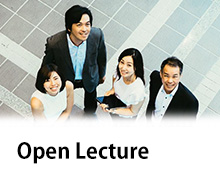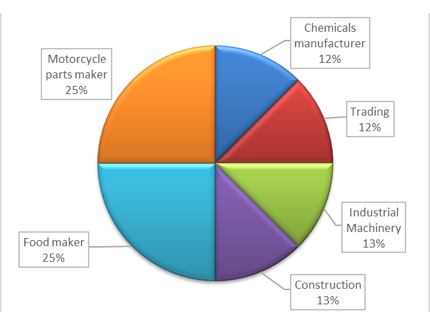
Column & Report
- HOME
- Case Study
- Column & Report
- Intercultural Management Training- 1 day program for Thai business personnel who work in a Japanese Company <Report>
- July 23rd, 2018report
- Intercultural Management Training- 1 day program for Thai business personnel who work in a Japanese Company <Report>
Written by Cicom Brains UBCL CO., LTD. Mayumi OTOGURO
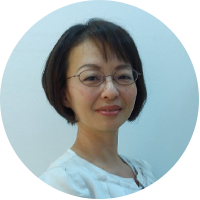
We (Cicom Brains UBCL CO., LTD.) held “Intercultural Management Training - 1 day program for Thai business personnel who work in a Japanese company on July 23rd, 2018.
This program is designed for Thai business persons who work in a Japanese company or who work with Japanese. Participants will learn how to communicate more effectively and how to build a good relationship with his/her Japanese bosses, colleagues, and clients etc. Participants will learn how cultural differences affect communication in business and find solutions through a lecture based on “The six dimensions model of national culture (※1)”. This model is one of the best-known cultural frameworks and of the most effective tools to improve cultural awareness and intercultural management skills, defined by Professor Geert Hofstede(※2), as well as various practical exercises and role plays facilitated by a highly experienced professional Cicom Brains UBCL certified instructor. In a program, participants take a self-assessment "Culture Survey (※3)" that allow them to quantify and verify cultural values.
The curriculum is well-structured and organized with the theory of 6-D model, and differentiating from the one in typical training programs which mainly rely on instructor’s talks based on his/her experiences.
By recognizing and respecting cultural differences from the Japanese and utilizing Hofstede’s model, participants will be able to mitigate the risks of misunderstanding of Japanese values and they can understand and fine-tune to Japanese communication style.
The instructor of this program, Prof. Onishi, is an expert who has wealth of knowledge & experience in intercultural management field with numerous lectures and presentations of research, publication of books, etc. He speaks Thai fluently and has completed professional training by Hofstede Insights(※3) as well as extensive experience as an expatriate in various countries in Southeast Asia including Thailand and a 5-year teaching experience at College of Management, Mahidol University (CMMU).
How was the training?
In the morning session, after the ice-breaking session, the instructor, Ms. Weeranuch explained difference of cultural values between the Thai and Japanese derived from various factors which influence the national culture, such as geographic, historic, religion, education and language. All participants were very cooperative and the atmosphere in the room was very lively.
In the afternoon session, Ms. Weeranuch lectured on “Hofstede 6-D model”(※1). The participants took "Culture Survey"assessment(※3) and objectively grasp their own sense of cultural values by number. Participants also demonstrated how to greet and how to exchange business cards as examples of some of the most unique behaviors reflecting Japanese cultural values. Through group works and case analysis, participants deepen their understanding of the Japanese values and they will be able to apply 6-D model as a practical skill in their own workplace.
In the case study session, the participants had a group discussion about a practical case, and shared various doubts and challenges they have about Japanese people’s behavior and/or companies’ culture. Not only the instructor provided answers and her opinions based on Hofstede's theory and her own experience, but also all participants shared their experiences & thoughts each other. For example, one of the participants just started working and never had working with Japanese people before, so others shared their working experiences and supported the participant. Through these input and output activities, participants firmly understand the meaning / influence of cultural difference and improve intercultural communication skills and knowledge.
Professor Geert Hofstede conducted one of the most comprehensive studies of how values in the workplace are influenced by culture. He then defines culture as “the collective programming of the mind distinguishing the members of one group or category of people from others”.
The 6-D model is a method based on the result of his extensive worldwide research. This method provides a systematic approach to understand the key underlying factors that influence culture.
Prof. Hofstede is a world authority in the field of “Culture and Management”, and his most popular book, Cultures and Organizations: Software of the Mind (1991, newest edition 2010, co-authored with Gert Jan Hofstede and Michael Minkov), has so far been translated into 20 languages.
|
Professor Geert Hofstede conducted one of the most comprehensive studies of how values in the workplace are influenced by culture. He then defines culture as “the collective programming of the mind distinguishing the members of one group or category of people from others”. The 6-D model is a method based on the result of his extensive worldwide research. This method provides a systematic approach to understand the key underlying factors that influence culture. Prof. Hofstede is a world authority in the field of “Culture and Management”, and his most popular book, Cultures and Organizations: Software of the Mind (1991, newest edition 2010, co-authored with Gert Jan Hofstede and Michael Minkov), has so far been translated into 20 languages. |
"Culture Survey" is an assessment based on the 6-D model. It allows you to objectively understand your own values by the numbers in a range from 0 to 100 represented by 6 dimensions. For example, by comparing each number on values between yourself and the average Japanese, you can foresee potential problems due to differences in values. You can get a useful insights about how to build better relationships in business with staff, business partners, and customers from different countries.
|
"Culture Survey" is an assessment based on the 6-D model. It allows you to objectively understand your own values by the numbers in a range from 0 to 100 represented by 6 dimensions. For example, by comparing each number on values between yourself and the average Japanese, you can foresee potential problems due to differences in values. You can get a useful insights about how to build better relationships in business with staff, business partners, and customers from different countries. |

It was so impressive that all participants helped each other during group work and presentation. Although the time allocation was shortage for the last topic of the session because of the active talks and discussions throughout the course on July 23rd, we believe those talks and discussions must help the participants to understand the lectures and contents they learnt.
We hope all participants enjoyed the class and will soon see the better results by utilizing the learned knowledge in their workplace. And the questionnaire results by participants are below. Please utilize the information in this report to help you to understand how this program was conducted and how useful and effective it is to enhance mutual understanding between Thai and Japanese. We will hold this program on September 4th, 2018. We are looking forward to seeing you in a class.
Participant Profile
Participant Satisfaction
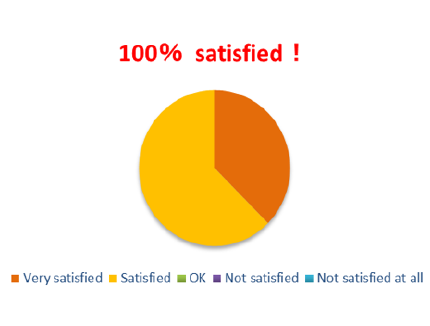
- Q. Why did you participate in this program? (Excerption)
-
- I wanted to know about Japanese business culture and manner/ to understand Japanese people more.
- I wanted to know about Japanese tradition. Also, the difference between Thai and Japanese in many aspects such as working style, the way of thinking and their behavior.
- I think this class is very useful for people who have to meet and communicate with Japanese customers.
- I have received a promotional E-Mail from my boss + I just started working in Japanese company.
- I wanted to adjust myself to Japanese culture and understand them more.
- Q. What did you get out of this program? (Excerption)
-
- I learnt that Japanese paid attention to small things/issues that Thais may look over.
- A Japanese organizational culture and how to adjust myself to get along with them.
- Exchange Name card / How to make an introduction / Bow & Greetings.
- I can apply this knowledge to many situations with boss, colleagues and customers.
- Work with Japanese people with understanding. I will share this knowledge with my colleagues.
- Be able to use what I have learnt today to adjust myself and improve my work performance.
- Understand the behavior of Japanese and be able to explain them to other people.
- Understand Japanese culture to work.
- Q.Please share with us any comments about this program. (Excerption)
-
- The instructor’s teaching style was very enjoyable and what I learnt is useful in the real working situation.
- I have learned interesting things from this course. The instructor explained the content very clearly, so it was easy to understand it.
- I feel good with this program. The instructor is experienced and friendly.
Skills required to succeed in a global business environment
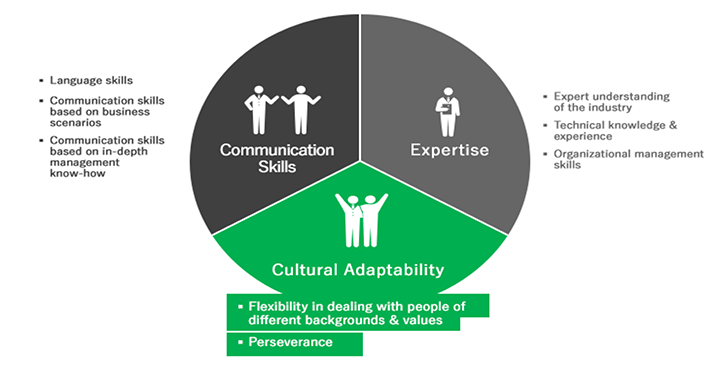
We, Cicom Brains, defines the following three skills as the mandatory abilities for a successful global business personnel.
- ・Communication Skills
- ・Expertise
- ・Cultural Adaptability
And we say cultural adaptability is most crucial to communicate and build a good relationship with boss / colleagues or clients from foreign countries.
If you work in Japanese organization or work with Japanese, you must encounter the difficult situations. One of the reasons is why you have to work with people with different national culture and values. Cultural values have been unconsciously programmed and learned since birth and the behavior you see is only the tip of the iceberg. Understanding this simple fact and learning “Hofstede’s 6-D model” will help you to improve cultural awareness and minimize misunderstandings and stresses caused by cultural gaps. You will then be able to much better perform in an international workplace.
- Contact UsContact us for additional informations about the courses or training plans.
-
Tokyo:+81-(0)3-5294-5576
*Japanese
Bangkok:+66-(0)82-671-8574
*Thai/English
-

